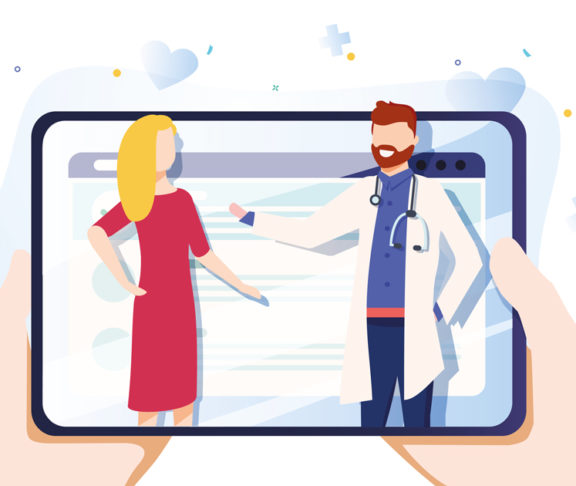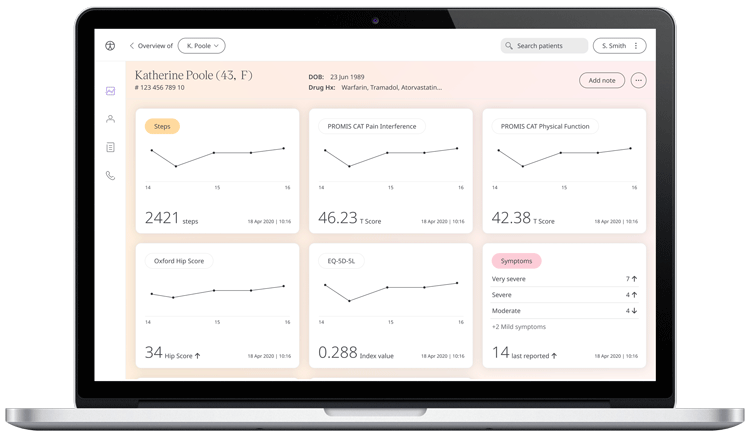
Mr Edward Tayton
Consultant Orthopaedic Surgeon

Mr Alex Gilbert
Life Sciences, Huma
Healthcare providers are turning to technology to support patients through the complex surgery pathway more effectively.
When it comes to surgery, the healthcare pathway is complex. The latest health apps guide patients at every step of their journey while giving healthcare professionals the information they need to support them.
Alex Gilbert from healthtech company Huma explains: “With our software, you have different elements that you can put together depending on the patients’ needs. They include those for data collection, patient education and support.”
The barrier in digital health hasn’t been hospital adoption but a lack of consumer engagement.
Mr Alex Gilbert
Software in practice
Edward Tayton is a Consultant Orthopaedic Surgeon who has been piloting a patient companion app developed by Huma and medical technology company Smith+Nephew, with patients undergoing knee replacement surgery.
As soon as one of Mr Tayton’s patients has a date for surgery, the app initiates a series of tasks ranging from tracking their health and symptoms to preparing them for their stay in hospital. These tasks continue post-surgery alongside physiotherapy and mental health clips.
“Normally surgeons aren’t sure how a patient is doing until they are reviewed at six weeks,” explains Mr Tayton. “With Huma, I can remotely track their recovery and see, using a traffic light system, if they have any problems.”
Increased patient engagement
Digital support has been helpful for the growing number of patients receiving knee replacements. “With the app, you can keep an eye on them in terms of an early warning system or a method for the patient to contact you if they think there’s a problem,” says Mr Tayton.
A silver lining of the COVID-19 pandemic has been the embrace of technology. As Mr Gilbert explains, “The barrier in digital health hasn’t been hospital adoption but a lack of consumer engagement. COVID-19 has led to people becoming more comfortable with utilising digital technology to understand and manage their care.”
Mr Tayton has been impressed with the willingness of his patients to engage with the app and can already see its potential within other areas of healthcare.




